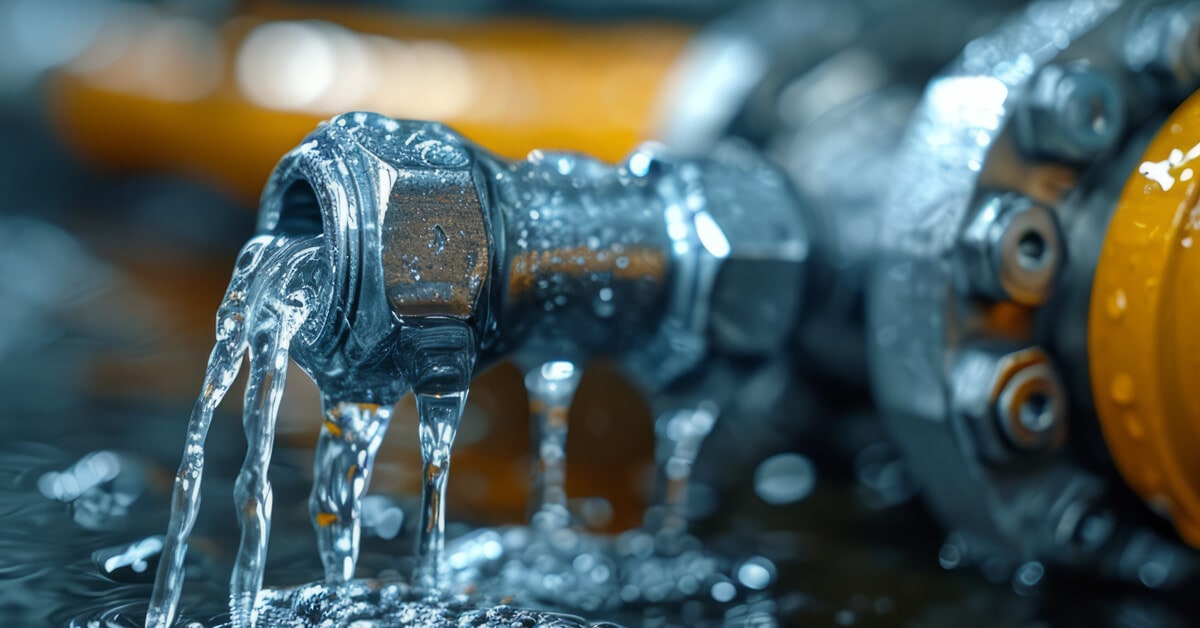CHOOSE
A DIFFERENT TERRITORY

Whether it is updating London's Victorian sewer system or meeting the challenges brought about by climate change and the UK's path to net-zero, water companies face a period of unprecedented change and necessary investment in the years ahead.
Fortunately, EMR – a global leader in sustainable materials with decades of experience returning vital resources back into the circular economy – can provide a recycling service that’s tailor-made to the needs of the industry, boosting the sustainability of projects large and small – as well as the resilience of the entire sector.
And there has never been a more important time to pick the right partner.
In 2025, the water industry will transition from its current asset management period (AMP7) to its next one (AMP8), which will run until 2030 and see billions more spent on new infrastructure and environmental protection.
In fact, the next five years will see investment rocket from £51bn (AMP7) to £88bn (AMP8). And, in the meantime, the industry must also meet any outstanding targets remaining from AMP7.
By working with EMR, companies can not only ensure their projects aren’t causing unnecessary harm to the natural environment, but they can also maximise the value of the high-quality metals and plastics that they don’t need.
A great example of this is how EMR is innovating steel recycling. While the production of virgin steel is responsible for 11% of global emissions, according to Carbon Brief, producing recycled steel creates up to 85% less emissions. EMR is now investing in a range of technologies – such as electric cranes and energy-efficient shredder motors – to slash these emissions further.
Our teams have also developed a brand-new reusable steel product – the world’s first to receive an EPD – which takes high-performing steel sections from end-of-life buildings and makes them available to the construction industry. Without the need for long-distance transportation and remelting, EMR’s reusable steel contains 97.5% less embedded carbon and is already being used in some of the UK’s greenest new development projects.
EMR’s plastics recycling arm – MBA Polymers UK – has, meanwhile, developed a new generation of recycled plastics, delivering its state-of-the-art materials to customers in the automotive, consumer products and logistics industries. MBA Polymers’ recycled plastics achieve carbon savings of between 75% and 86% compared to virgin alternatives, making them the first such polymers to carry the Carbon Trust's Lower CO2 label.
In both of these cases – and many more – EMR’s investment and innovation is not only helping our customers meet demanding sustainability targets but also enabling our teams to pass on much of the additional value we’re able to extract from material which may otherwise end up in landfill.
EMR’s commitment extends beyond the materials we recycle. We understand that large-scale projects can have a transformative impact on the communities they touch, and our involvement as a recycling partner is designed to support these social initiatives. Through partnerships with local charities and ongoing community programmes, EMR provides consistent support to some of the most vulnerable members of society. By working closely with local stakeholders, we help ensure that these projects deliver social value alongside environmental gains. For water companies preparing for AMP8, this focus on community engagement represents a meaningful opportunity to meet corporate social responsibility goals while building lasting community relationships.
For complex projects like those in the water sector, early involvement in the design process can unlock significant efficiencies and sustainability gains. EMR has a proven record of working with major manufacturers to create circularity labs that incorporate recyclability at the design stage. This proactive approach allows us to work with partners to optimise material use, reduce waste, and streamline recycling processes right from the outset. For water companies, engaging EMR at the beginning of the project lifecycle means a greater alignment with circular economy principles and an assurance that each material will be handled with a focus on reuse and recycling. Our expertise in circularity design can provide water sector partners with tailored advice that maximises both financial returns and environmental outcomes throughout AMP8.
Of course, water companies will want to ensure their teams are squarely focused on delivering the ambitious plans they have for the UK’s water resilience, supply and sustainability – and not necessarily on recycling material from legacy assets and damaged pipes. An additional benefit of working with EMR – which recycles, reuses and repurposes ferrous metal (steel and iron), non-ferrous metal (such as copper, brass and aluminium) and many plastics – is that businesses can have a single point of contact for their recycling needs.
Our team of dedicated and knowledgeable Account Managers stand ready to work with you from the start of your project to the end.
At EMR, we believe that being a resilient, responsible business means more than simply achieving compliance with a series of externally-set targets.
So, if you’re looking for a reliable recycling partner to help your business achieve its final AMP7 targets – and prepare for the challenges and opportunities of AMP8 – get in touch with EMR at utilities@emrgroup.com today.